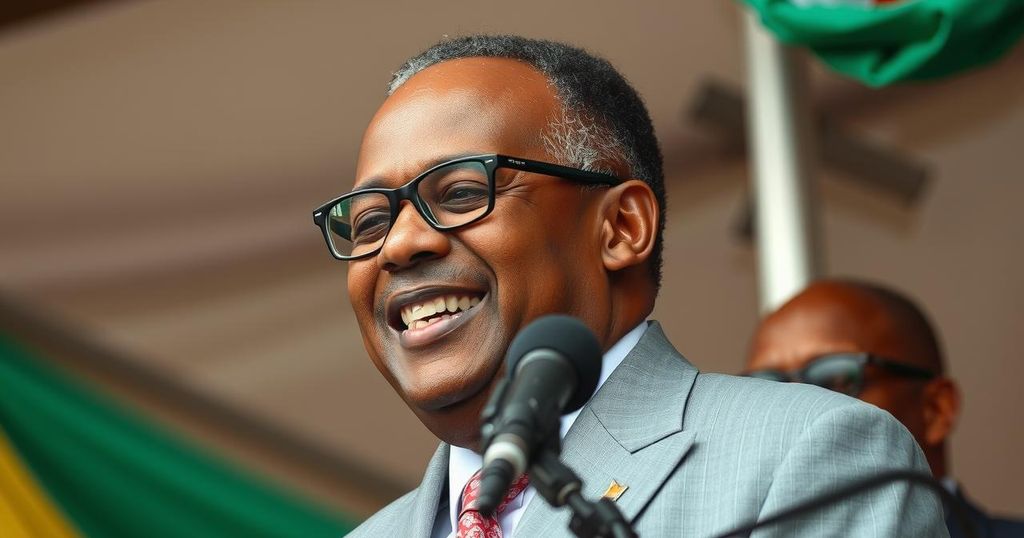Ghana’s former president John Dramani Mahama has won the presidential election with 56.5% of the vote, defeating Vice President Mahamudu Bawumia. His victory is seen as a response to widespread dissatisfaction with the government’s handling of the economy, especially among young voters. Celebrations erupted nationwide following his declaration of victory, which also reinforced the opposition’s control of parliament and highlighted trends favoring opposition parties globally.
In a historic victory announced on Monday evening, Ghana’s former president John Dramani Mahama has been declared the winner of the presidential election held against the backdrop of a severe economic crisis. Mahama, who previously served from 2012 to 2017, secured 6.3 million votes, equivalent to 56.5% of the total votes cast according to the electoral commission. His primary opponent, Vice President Mahamudu Bawumia, conceded defeat after receiving 4.6 million votes, representing 41% of the total.
Mahama characterized his election triumph as an “emphatic” response to the electorate’s dissatisfaction with the government’s economic management. His campaign focused on plans to “reset” the country, particularly addressing the pressing economic issues that have led to significant discontent among voters, especially the youth. Celebrations erupted across the nation, including in the capital, where supporters of Mahama’s party expressed their joy through music and dance.
The recent election was not only a referendum on the state of the economy caused by the outgoing administration of President Nana Akufo-Addo but also a measure of Ghana’s democracy, which has largely remained stable in a region otherwise afflicted by political turmoil. Observations by the Economic Community of West African States (ECOWAS) affirmed that the electoral process was conducted peacefully, signifying a continued democratic tradition in Ghana.
Mahama’s National Democratic Congress also claimed victory in the parliamentary elections, reinforcing their position in Ghana’s political landscape. Analysts suggest that Mahama’s win reflects a broader global trend where opposition parties gain popularity against governing incumbents amid economic discontent. Policy analyst Jude Agbemava stated that Mahama is viewed as “the only person” capable of restoring Ghana’s economic strength, highlighting the urgent need for effective governance in light of current challenges.
The political landscape in Ghana has experienced shifts in recent years, particularly in the context of economic challenges. With the country grappling with the worst cost-of-living crisis in a generation, voters expressed their frustrations through the ballot box during the recent presidential election, leading to the decisive victory of John Dramani Mahama. This electoral outcome not only signifies a change in leadership but also mirrors a global trend of voters favoring opposition parties amid dissatisfaction with current administrations. The election itself took place under the scrutiny of international observers, who noted its peaceful conduct, emphasizing the importance of democratic processes in West Africa, an area susceptible to political instability and violence.
In conclusion, John Dramani Mahama’s victory in Ghana’s presidential election underscores the electorate’s desire for change, particularly in managing economic challenges. His campaign promises to ‘reset’ the nation resonate deeply with voters seeking solutions to pressing economic issues. As the country transitions to a new leadership, the focus will be on Mahama’s ability to address the economic crisis effectively while nurturing Ghana’s democratic values in a region marked by political uncertainty.
Original Source: www.usnews.com






